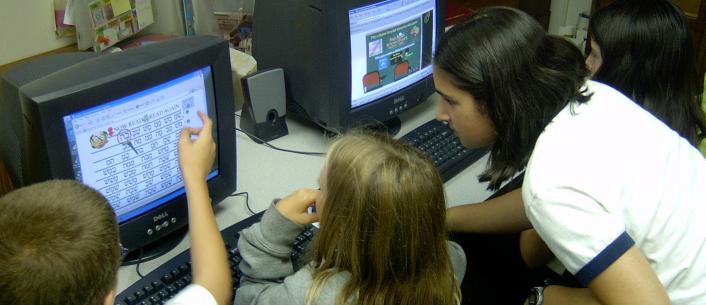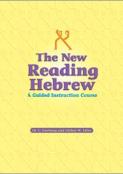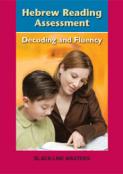- Home
- Play & Learn Home
- Online Enrichment
- Experience Modern Israel
- Israel It's Complicated
- Jewish and Me
- Jewish Holidays Jewish Values
- Jewish Values in Genesis and Jewish Values in Exodus
- Min Ha’aretz
- Our Place in the Universe
- Simply Seder
- The Prophets: Speaking Out for Justice
- Making T'filah Meaningful
- Make, Create, Celebrate
- Yom Haatzmaut Resources
- Hebrew Apps
- About The OLC
- What is the OLC?
- Introduction
- Get Started
- Resources
- OLC Content
- Parent Materials
- See My OLC Classes
- Store
Help Students Learn More Hebrew and Remember It Better
Written by Anonymous, 21 of September, 2011
Hebrew can be a challenge for young learners, especially in the supplemental school setting when some classes meet for just one hour a week. A new discipline known as Mind, Brain and Education may offer some insights into learning that can help you increase the effectiveness of your program.
Mind, Brain and Education is dedicated to understanding and improving the ways in which children absorb, retain and apply knowledge. According to author Annie Murphy Paul in her recent article The Trouble With Homework (The New York Times, September 10, 2011), "In recent years, neuroscientists, cognitive scientists, and educational psychologists have made a series of remarkable discoveries about how the human brain learns." And, she suggests, these discoveries can be applied not only in the classroom, but in well-crafted homework assignments as well.
Here are three ideas from the research findings discussed in the article, and ways Behrman House can help your students benefit from them right now, both in class and at home.
1. Homework can work if the focus is on quality rather than quantity.
Your students already have a lot in their lives, and adding homework doesn’t automatically equal better student performance. You need the right homework. Ask yourself, how can after-school assignments effectively advance my students' learning?
One way is to give students work at home they actually want to do. Educators tell us that the Hebrew activities and games in Alef Bet Quest and Kol Yisrael are encouraging their students to spend extra time on task, in part because they are fun. And the results are showing in class.
2. “Spaced repetition” has a positive impact on learning.
With spaced repetition, learners encounter the same material in shorter in-class or at-home sessions spread over a longer period of time. Exposing students to information repeatedly over time fixes it more permanently in their minds, by strengthening the representation of the information that is embedded in their neural networks.
Assign the digital companions in Alef Bet Questand Kol Yisrael consistently—religiously! After every lesson using the book, have students practice online at home. Many schools require practice 5 or 10 minutes a day, rather than one ½ hour session per week. This “spaced repetition” consistently re-exposes students to Hebrew skills throughout the semester.
Looking for additional practice? We have 'Click and Read' decoding exercises right on our website, great for at-home use. Many educators have also discovered that The New Reading Hebrew offers an effective way to introduce additional practice into the classroom or at home. For more advanced students, the two volumes of The Ten Minute Hebrew Reader offer good oppotunities for spaced repetition throughout the school year.
3. “Retrieval practice” uses tests in a new way: not to assess what students know, but to reinforce it.
Every time we pull up a memory, we make it stronger and more lasting, so testing doesn’t just measure knowledge, it changes learning. Students who used retrieval practice to learn science retained about 50% more of the material than students who studied in traditional ways, researchers from Purdue University reported earlier this year. Self-quizzing is an effective way to do this.
Use assessment tools such as Hebrew Reading Assessment, the Review Sheets and Answer Keys for Kol Yisrael, and the Assessment Sheets in the Teacher’s Edition for Alef Bet Quest. Have students read to their parents at home using pages from the Hineni Family Companions. And, of course, when students practice reading Hebrew with the digital companions, they can “retrieve” and produce the pronunciation before having it reinforced automatically—in either American or Israeli accents!
So, go for it. See how some of the principles from this new discipline of Mind, Brain and Education can help you meet your goals in Hebrew.
Terry S. Kaye is Director of Behrman House Consulting Group. She can be reached at terry@bhconsultinggroup.com.



